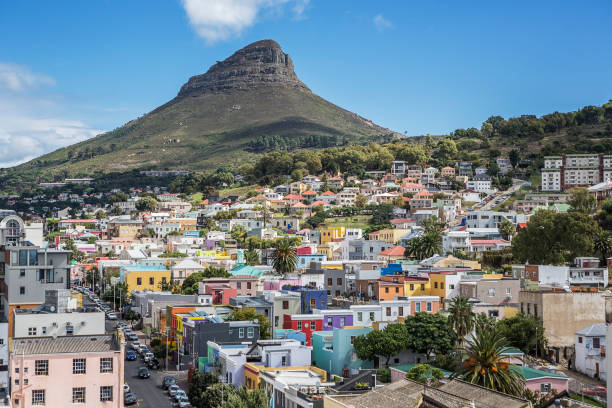Africa is a continent that has a lot of potential for real estate investment due to its growing population, rapid urbanization, and a rising middle class.
The real estate industry in Africa has been growing rapidly over the years, and investors are taking notice of the numerous opportunities available in the market. However, not all African countries offer equal opportunities when it comes to real estate investment. In this article, we will discuss the best places to invest in real estate in Africa.
Morocco
Morocco is one of the most attractive destinations for real estate investors in Africa. The country has a stable political environment, a growing economy, and a strong tourism industry, making it a prime location for investment.
The Moroccan government has implemented policies to promote foreign investment in the country's real estate sector, and it has created a favorable environment for investment by simplifying the process of acquiring land and reducing taxes.
In addition, Morocco has a well-developed infrastructure, including airports, highways, and seaports. The country also has a robust real estate market, with a wide range of investment opportunities in residential, commercial, and industrial properties. Overall, Morocco offers a promising market for real estate investors.
Ghana
Ghana is another African country that is attracting real estate investors due to its stable democracy, growing economy, and a rising middle class.
The country has been experiencing rapid urbanization, which has led to an increase in demand for housing and commercial real estate. The Ghanaian government has implemented policies to promote investment in the real estate sector, including tax incentives and investment-friendly regulations.
Ghana also has a well-developed financial sector, which makes it easy for investors to access financing. The country's real estate market is diverse, with investment opportunities in residential, commercial, and industrial properties. Overall, Ghana is a promising destination for real estate investment in Africa.
South Africa
South Africa is one of the most developed economies in Africa, with a well-established real estate market.
The country has a stable political environment and a well-developed legal system, which makes it a favorable environment for real estate investment.
South Africa has a range of investment opportunities in residential, commercial, and industrial properties.
In addition, the country has a well-developed infrastructure, including airports, highways, and seaports, which makes it easy for investors to access the market.
The South African government has implemented policies to promote investment in the real estate sector, including tax incentives and investment-friendly regulations.
Overall, South Africa is a promising market for real estate investors in Africa.
Kenya
Kenya is another African country that is attracting real estate investors due to its growing economy, a rising middle class, and a fast-developing real estate market.
The Kenyan government has implemented policies to promote investment in the real estate sector, including tax incentives and investment-friendly regulations.
Kenya has a diverse real estate market, with investment opportunities in residential, commercial, and industrial properties.
The country also has a well-developed infrastructure, including airports, highways, and seaports. Overall, Kenya offers a promising market for real estate investment in Africa.
Nigeria
Nigeria is the most populous country in Africa, and it has a large and growing middle class, which has led to an increase in demand for housing and commercial real estate.
The Nigerian government has implemented policies to promote investment in the real estate sector, including tax incentives and investment-friendly regulations.
Nigeria has a diverse real estate market, with investment opportunities in residential, commercial, and industrial properties.
The country also has a well-developed financial sector, which makes it easy for investors to access financing. However, the country also has some challenges, such as insecurity and corruption, which investors need to be aware of before investing in the real estate sector.

Comments
Post a Comment